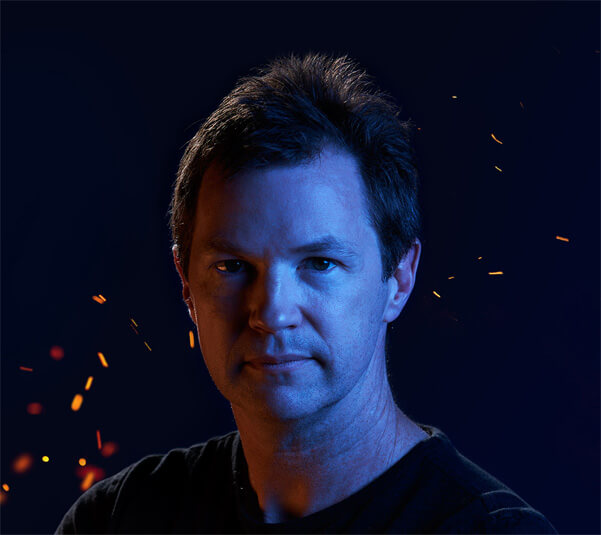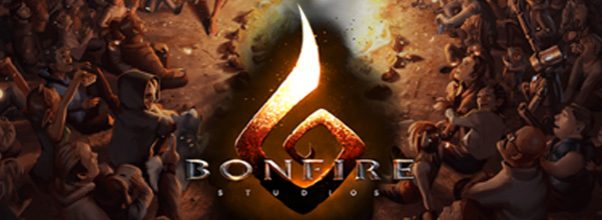In September, the world learned that former Blizzard Chief Creative Officer Rob Pardo launched a new video game studio called Bonfire Studios. Pardo’s biggest claim to fame which earned him a spot-on TIME Magazine’s 100 influential people of 2006 was that he was the prime architect of the record shattering MMORPG: World of Warcraft.
Pardo’s success with WoW granted him luminary status in the video game industry. As a frequent speaker in the video game conference circuit, people listen to what he has to say, even the BBC. Recently he told them that he believes that e-sports should be an Olympic sport. It’s now clear that Rob was one of the prime proponents of Blizzard’s initiative in e-sports.
It’s hard not to be impressed by Rob’s journey from mere game designer on Starcraft to entertainment visionary. But this journey is far from over. Rob left Blizzard in 2014. When people leave a video game studio the real reasons for their departure are rarely — if ever — made public.
Perhaps he was fed up with him and Blizzard being relentlessly attacked by social justice warriors who seek to intimidate video game developers in order to advance their progressive political agenda. Maybe he was horrified by Blizzard’s capitulation to those attacks. It could be that he was worried about the general direction of Blizzard. Perhaps it was the failure of Titan. We may never know. For whatever reason, no one can blame Rob for leaving Blizzard — a company that is barely recognizable from their 2004 incarnation.
In an industry where creativity is paramount, the creative spirit must be unhindered and unhampered and I sense Rob wasn’t able to be true to himself by remaining with Blizzard. You don’t hang around for long when you are unhappy, underappreciated or when the culture of the studio goes downhill. Rob’s track record and pedigree affords him the rare freedom to do as he wishes, so the creation of Bonfire Studios seems like a natural move.
I’ve spent many years analyzing Blizzard through the lens of virtual worlds and MMORPGs. The incarnation of Blizzard that made the greatest impression on me was the Blizzard from 2000 up until the Wrath of the Lich King expansion released in 2008. This is the era where Rob Pardo’s influence on WoW reached its apogee.
The Blizzard of today is not the same Blizzard I used to know. Many of the employee reviews on Glassdoor testify to this. I believe Blizzard’s best days are behind them. The company has gradually changed and morphed into another large global corporation. Given these changes, there has been an exodus of talented people departing Blizzard and it’s hard to believe that Rob Pardo didn’t leave earlier.
The Evangelist of the Blizzard Formula
With World of Warcraft and the leadership of Pardo, the Irvine California based Blizzard took an niche online video game genre called massively multiplayer online role playing games and turned it into a blockbuster success with millions of subscribers worldwide. This amazing feat was no accident. It was the result of Pardo’s will and the implementation of the Blizzard formula.

The unparalleled success of WoW shocked everyone. WoW was so breathtaking and polished that made older MMOs like EverQuest look pitiful in comparison. At the time, everyone in the industry desperately wanted to know the secret of Blizzard’s success with WoW.
Eventually, the Blizzard formula was finally revealed by Rob Pardo in 2006 at the Austin Game Conference, It encompasses a myriad of values and philosophies that are too vast to explain for the purposes of this article. However, the main gist of the formula is that they find niche video games, take the best features from them, trim off non-essential features, throw in a lot of refinement and polish with the result being something new and accessible to a wide demographic.
The Blizzard formula also relies heavily on a philosophy of on-boarding newbies and accessibility via refined gameplay that gives appropriate challenges to players who have different skill levels and time commitments.
Lastly, the Blizzard formula is also about execution. Blizzard generally does not release their games until they are perfect — at least that is what they used to do. They could do this because Blizzard was its own publisher which is something that was and still is truly rare in the video game industry. Sadly this is not the case with most video game studios who are contracted by publishers who routinely release games before they are done in order to satisfy the financial bottom line.
Over the years at various design conferences, Rob Pardo has been the main evangelist of the Blizzard formula.
Rob Pardo’s Legacy on the MMO Genre
Once you get beyond the profits, the accolades and the fame, those of us who love MMORPGs need to stare reality in the face: the success of Blizzard’s formula under Rob Pardo’s stewardship has come at a great cost. A cost that the video games media refuses to acknowledge, investigate and discuss lest they lose their precious access to Blizzard at their various trade shows and conventions. With WoW, Blizzard took a niche genre which that had a vibrant in-game community of gamers and created genre that over the years all but eliminated the need for social contact and cooperation within their game.
This was in striking contrast to the cooperative gameplay found in the first 3D virtual world of EverQuest where players would play classes that were purposefully designed to be interdependent and complementary with each other. The genius of EverQuest was that it created a virtual world where players needed each other to survive and thrive. This interdependency created a remarkable synergy of combat effectiveness which created a deep level of social cohesion and bonding that no other video game genre has ever managed to create or replicate since.
With WoW, Blizzard foolishly and recklessly ignored the importance of community in EverQuest and gutted most design mechanics in favor of creating a solo-friendly “everyone is welcome” amusement park MMO.
Today MMORPGs epitomized by WoW, have become anti-social, soulless, single-player video games where players solo to the level cap and complete a series of unending quests all connected by a grand storytelling narrative. Other players that you meet while playing WoW are just more sophisticated NPCs and are essentially fellow theme park visitors you meet while you line up for the attraction — you don’t know them and they’ll never get to know you.
The personal freedom and autonomy of sandbox virtual worlds where players create their own stories and memories has vanished from the MMO genre.
The Decline of the MMO Player
Nobody dares to talk about how the quality of MMO players has deteriorated since the advent of WoW but I will.
The most important and regrettably ignored characteristic of a MMO and a virtual world is not the world itself but the players that inhabit that world. Players are content.
Without players MMOs are lifeless and meaningless. Accomplishments would mean very little without other players to share them with and compare them to. Great schools create great students and future leaders of the world. Great MMOs create great players that enrich the virtual worlds they inhabit. Conversely, bad MMOs create bad players.
After years of MMO devs pandering to players and giving into their every desire and whim, the quality of the MMO player base has also become a casualty of thoughtless, profit driven design. Players have become more uncaring, detached, selfish, self-absorbed, anti-social and narcissistic in the process. It’s all about me instead of we. Who can blame them? Each MMO gets the community they deserve by virtue of how they are designed and also by eliminating barriers to entry that attract people of lower caliber. When players have no need for other players they power and independence they gain makes them arrogant and even mean. Just check out Trade Chat on any WoW server for evidence of this.
Imagine going into a restaurant that has a great ambience and great food only to find that the patrons at the table are rude, loud and obnoxious. Despite the quality of the food and the surroundings you would not want to patronize a restaurant like this. This is a metaphor that explains the current situation with WoW.
The Root of All Evil
The sobering reality of the video game business is that companies make videos games to make money. Many design decisions in WoW were based more on creating accessible game play with the intent of attracting more subscribers than they were for the good of the game, the health of the MMO and the community that plays them.

What happened to WoW was not unintended consequences, rather it was done with full knowledge of what would happen. Their conscious decision to put profits over gameplay is the biggest tragedy of WoW and Blizzard’s biggest failing. The popularity of WoW legacy servers like Nostalrius confirms this because even vanilla WoW featured far more challenge and social interdependence than the current version of WoW.
Ex-Blizzard WoW Design Lead Greg “Ghostcrawler” Street who left Blizzard to work for Riot Games on League of Legends pretty much admits this an interview on Twitter:
Do you ever regret opening the game up to be more casual? Instead of taking the kind of direction you are with league?
Greg Street: Different approaches work for different products, and I don’t want to second guess the WoW team. Let’s just say that after working on Age of Empires and World of Warcraft for a total of 16 years, it’s really refreshing to work on a game where I don’t have to worry whether someone’s grandmother can pick it up or not.
That quote by an ex-WoW developer really says it all about the deep seated-truth about Blizzard’s intentions all along: it’s about money.
Seeing the success of WoW, most if not all of the MMO industry became seduced by the profit potential and followed suit by producing WoW clones with disastrous failure after failure. The utter dominance of Blizzard’s WoW in the genre has stifled competition in that it’s almost impossible to raise funds from investors for new and original MMOs.
The Buck Stops with Blizzard
There can be no doubt that Rob Pardo who lead the WoW dev team bears much of the responsibility for the current state of the MMO genre today. To their credit some WoW devs like Alex Afrasiabi have occasionally acknowledged that the social component of WoW has deteriorated but nothing has changed to remedy the problem.
To my knowledge, Pardo has never apologized for the carnage his Frankenstein monster perpetrated on the MMO genre. At the Unite 2015 Fireside Chat Q&Q — 15 years after WoW was conceived — he is still on record defending the terrible decision to have instanced dungeons in WoW.
I believe the wholesale replacement of community dungeons with instancing was one of the biggest design mistakes ever perpetrated on the MMO genre because among other things, it devalued the social and community component of dungeons where players would hang out together and get to know each other. It also removed important design tenets of competition, scarcity and the drama and conflict that ensues that makes virtual worlds come alive.
Rob’s Embarks on a Journey of Redemption
In the past two years since Rob left Blizzard and embarked on his sabbatical from the industry. I have to believe that Rob has done a lot of reflection on his legacy.
In 2015 he became an advisor for Unity and is now an evangelist for more multiplayer friendly video games.
After all these years does Rob Pardo finally get it?
Perhaps. Bonfire Studios could be a portent that Pardo has taken the first steps on his journey of redemption.
If we look at the mission statement of Pardo’s Bonfire Studios we see perhaps a hint that perhaps he is remorseful for how WoW all but removed social aspect of MMORPGs:
Our purpose is to build friendships by creating legendary game experiences that bring players closer together, united in a sense of adventure, exploration and fellowship.
This slogan is bold and refreshing. It’s almost the inverse of Blizzard’s WoW philosophy where players are secondary to the epic narrative. Finally, we gave a video game studio that understands the transformative capability of video games to bring people together. If only Blizzard had adopted this philosophy when making WoW. What a different world Azeroth would be.
However, these are still just words in an industry rife with hype and talking points, so of course I am skeptical.
While there are many good and talented people in the industry, it also has its share of talent-less hacks, egotistical bastards, shady characters and snake oil salesmen. The video game industry is much like the music business — both seen as glamorous by the public. As Andy Summers guitarist of rock group The Police once remarked: “The music industry has a high asshole quotient”. I believe the same is true of the video game industry.
Every day new studios are formed and dubious Kickstarter campaigns are launched. Most new video game companies fail. Even ones started by ex-Blizzard employees. Caveat emptor.
The Importance of Community
As a long-time observer of Blizzard, I have never seen the importance of the social component of video games mentioned in any of their design presentations. Communities don’t spring up by magic, they are created by purposeful design.
Authentic community never really mattered to Blizzard and it shows. Somehow they just assumed that a great community would just magically appear within their world of Azeroth. Sadly, it did not. Blizzard always talked a good game and payed the notion of “community” lip service at their annual BlizzCon gamer conventions which is the only manifestation of community available to them. But the only community that matters is within the gameworld itself, not the pseudo community of BlizzCon gatherings, message forms, Twitter or Facebook.
We should never trust the video game industry when they indulge in virtue signalling as they exalt the virtues of community and social interaction. The rise and fall of gamification and “social games” fads on Facebook teaches us that the industry cares little for authentic social interaction and community. To them community is a means to an end. Community only matters if can increase their profits.
Video game companies with the budget and resources of Blizzard should be ensuring that more of their design is done because it’s the right thing to do. Design decisions should be made primarily for a better game and a better play experience — and not just because it increases their subscriber base. For once it would be nice to see a video game that puts the integrity of the game over profits.
Reboot Your Mindset
In the past I have given advice to new MMO designers that the only way they will ever make something new and original is to forget everything they know about WoW. WoW has corrupted the hearts and minds of so many designers that the only way to be free of it’s influence is to stop playing it entirely. Leaving WoW is like leaving an abusive relationship or a cult; it’s not easy and takes courage.
My advice to Rob Pardo and every other top Blizzard developer who used to play EverQuest and cared about this genre is this: play Project 1999 for a few months. Yes, you can go back in time and experience the magic of EverQuest on an emulated legacy server. You can go back to your roots and see what a real fantasy virtual world is like and experience the joy of community based gameplay based on class interdependency.
Conclusion
In my eyes, Rob Pardo’s virtual world legacy is a double-edged sword. To me he will be always be part villain and part hero. Part villain for removing the community from the MMO genre and part hero for introducing a high-level of polish and refinement that exposed the MMO genre to new audiences.
Back in 2014 when reflecting on the impact of 10 years of World of Warcraft, veteran MMO developer and author Raph Koster closed his insightful article with this chilling and sobering thought:
Its influence is such that it now defines the genre it refined. It is the best Diku ever made; the best combat MMO ever made; the thing to which everything like it will ever after be compared. World of Warcraft effectively made MMOs perfect, and in the process, it killed them.
This is a serious indictment and Rob Pardo — the mastermind behind WoW — is guilty as charged. Whatever gains were made in MMO production, artistry, combat and technology have been dwarfed by the losses incurred to the genre. Purposely killing off the community in MMOs and indirectly stifling development of other MMOs is nothing to be proud of.
Blizzard with all their untold resources could have easily created another MMO that learned from the mistakes of WoW and once again reintroduced community building design mechanics into the MMO zeitgeist but they chose not to. Blizzard is now obsessed with an unhealthy philosophy that every product they create must be a blockbuster with mass market appeal. Blizzard would rather serve us Big Macs than Wagyu beef.
It is my sincere wish that someday Rob Pardo exhibits the decency to acknowledge the cost of the success that the dominance of World of Warcraft incurred on the virtual world genre. Truth matters. Now that Pardo is no longer with Blizzard he can speak truth to power just as others who have left are starting to come clean. His admission would be a powerful gesture that could lay the groundwork for future MMOs to pick up the torch and build on the legacy of community based virtual worlds like EverQuest and Star Wars Galaxies that existed before the WoW juggernaut. Until that day comes and it may never come, Rob’s actions will speak louder than his words.
Even with all my doubts and reservations, I do take Rob Pardo at his word and admire him for spearheading the first video game studio that has a mission statement that strives to value, design and promote of the social aspect of video games. It’s refreshing that Rob and his team understand the importance of small teams and creating a culture that values collaboration and creativity free from the bureaucracy and meddling and of upper level management.
For the creative spirit to thrive it needs to operate without constraints. The very best art is made by the artist to please himself. To me this is what Blizzard used to be all about. So I firmly hope that Bonfire Studios will resist the temptation to capitulate to external forces that seek to change art & entertainment for indoctrination and propaganda purposes. They could actually become revolutionaries by making games for actual gamers again. I wish Rob Pardo and his team at Bonfire Studios the best of luck.
-Wolfshead





I very much agree. Player mindset changed a lot, the social and team aspects got very much lost to pure selfish opportunism in a quite shocking degree. I think not only Blizzard has the problem that their designers are first and foremost game designers, but with a very strong single player mindset. They probably have dozens of single player related design ideas and rather think about them than about social aspects and teamplay on a grander scale. It really seems as if Pardo might have seen what got lost in the process of optimizing WoW, but we will see. Marketing speech including the word legendary shouldn’t really be believed.
Great point that most of the Blizzard designers have single player video game experience. I talked about this in a previous article as well. MMOs are entirely different and unique forms of participatory entertainment than a mere video game so they require a completely different mindset.
You are right, I think Blizzard and Pardo forgot about the important social aspect of MMOs during the years of continual optimization and refinement of WoW. Every year they kept streamlining WoW and making it easier to play in order to increase accessibility to attract more new subscribers.
At least Pardo got funding for Bonfire because his team has a solid track record. Contrast that to the myriad of indie MMO developers with teams who have little to no experience who have yet to secure funding and are struggling.